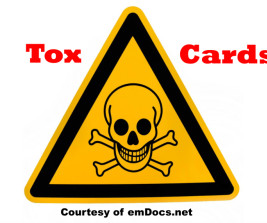Grand Rounds Recap 4.5.23
Taming the SRU
APRIL 13, 2023
beta blockers decrease ability to dissipate heat through increase CO, diuretics predispose to dehydration, or anticholinergic agents can affect thermoregulation) Clinical Presentation: Temperature elevation, usually 40.5C EtOH, amphetamines, or cocaine) Prescription drugs (i.e.












Let's personalize your content